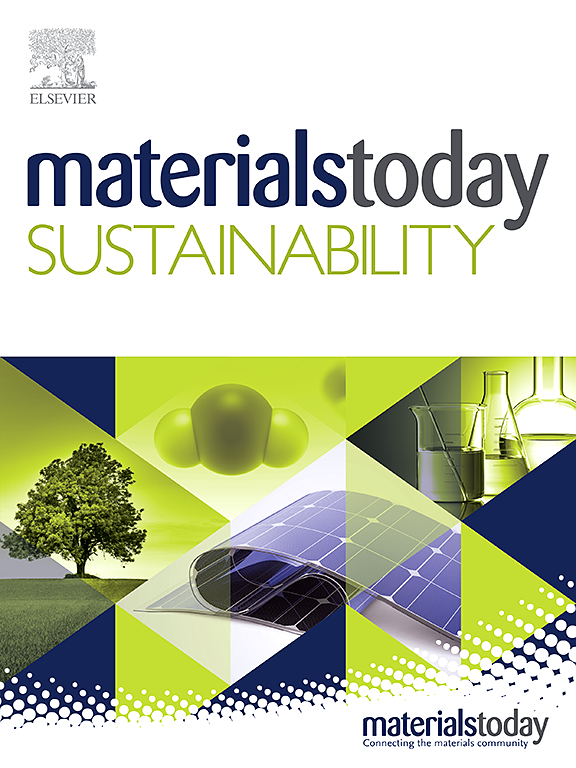Sustainable CFRP drilling using support plates: A comprehensive analysis of delamination suppression and cost-effectiveness
IF 7.1
3区 材料科学
Q1 GREEN & SUSTAINABLE SCIENCE & TECHNOLOGY
引用次数: 0
Abstract
Carbon fiber-reinforced polymers (CFRPs) are extensively utilized in the aerospace industry due to their exceptional strength-to-weight ratios, enabling weight reduction and improved energy efficiency. Despite their advantages, the anisotropic properties of CFRPs result in defects, such as delamination, during drilling processes, reducing manufacturing efficiency and increasing production costs. While support plates have been employed to address such issues, existing studies have not sufficiently explored their economic and environmental implications, nor have they evaluated the potential of novel materials like cork. This study introduces a novel machining economics model tailored for CFRP drilling, integrating defect suppression, energy consumption, and production costs into a unified framework. Furthermore, this research uniquely explores cork as a support plate material, which has not been previously studied in the context of CFRP drilling. Experimental analyses demonstrate that cork achieves a 12.45% reduction in delamination and lowers overall drilling costs to 87.39% of those incurred without support plates. These findings establish cork as the most sustainable and cost-effective support plate material, while the proposed model provides a comprehensive method for evaluating machining quality and sustainability. By integrating a novel machining economics model and introducing cork as a support plate material, this study offers a practical solution to enhance cost-efficiency, defect suppression, and sustainability in aerospace manufacturing.
可持续CFRP钻孔使用支撑板:分层抑制和成本效益的综合分析
碳纤维增强聚合物(CFRPs)由于其卓越的强度重量比,能够减轻重量并提高能源效率,在航空航天工业中得到广泛应用。尽管cfrp具有诸多优点,但其各向异性特性导致了钻井过程中出现分层等缺陷,降低了制造效率,增加了生产成本。虽然支撑板已经被用来解决这些问题,但现有的研究并没有充分探索其经济和环境影响,也没有评估软木等新材料的潜力。本研究提出了一种针对CFRP钻孔的新型加工经济学模型,将缺陷抑制、能耗和生产成本整合到一个统一的框架中。此外,这项研究独特地探索了软木作为支撑板材料,这在CFRP钻孔的背景下还没有被研究过。实验分析表明,软木塞可以减少12.45%的分层,将总钻井成本降低到没有支撑板时的87.39%。这些研究结果表明软木是最具可持续性和成本效益的支撑板材料,而所提出的模型提供了评估加工质量和可持续性的综合方法。通过整合一种新的加工经济学模型,并引入软木作为支撑板材料,本研究为提高航空航天制造的成本效率、缺陷抑制和可持续性提供了实用的解决方案。
本文章由计算机程序翻译,如有差异,请以英文原文为准。
求助全文
约1分钟内获得全文
求助全文
来源期刊

Materials Today Sustainability
Multiple-
CiteScore
5.80
自引率
6.40%
发文量
174
审稿时长
32 days
期刊介绍:
Materials Today Sustainability is a multi-disciplinary journal covering all aspects of sustainability through materials science.
With a rapidly increasing population with growing demands, materials science has emerged as a critical discipline toward protecting of the environment and ensuring the long term survival of future generations.
 求助内容:
求助内容: 应助结果提醒方式:
应助结果提醒方式:


